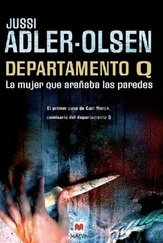Within three wrathful hours — in which, at one point, our people understood the Art people to have implied our people were unqualified to teach a course our people heard as Spaces, Goldwyn-Giotto: Film and Fresca — we had resolved the question of Space on Film. It will be taught jointly, by our people and their people, in a seminar next spring. It will be listed under our people in the catalogue. If anything goes wrong, the featherbedding illiterates in our department will join the reactionary pedants in theirs to blame it on Open Admissions, the program by which the university now lets all interested high school graduates in. “Open Admissions” sounds like an outdoor confessional. It is another faculty excuse for doing less and earning more. “Standards are down,” the H.B.A.s and holders of degrees in Film and Oral Science will say. “We have Open Admissions, after all.” I won’t be here next spring.
Talent was blazing through the columns and onto the coffee tables. The physical-assault metaphor had taken over the reviews. “Guts,” never much of a word outside the hunting season, was a favorite noun in literary prose. People were said to have or to lack them, to perceive beauty and make moral distinctions in no other place. “Gut-busting” and “gut-wrenching” were accolades. “Nerve-shattering,” “eye-popping,” “bone-crunching”—the responsive critic was a crushed, impaled, electrocuted man. “Searing” was lukewarm. Anything merely spraining or tooth-extracting would have been only a minor masterpiece. “Literally,” in every single case, meant figuratively; that is, not literally. This film will literally grab you by the throat. This book will literally knock you out of your chair. “Presently” always meant not soon but now.
Sometimes the assault mode took the form of peremptory orders. See it. Read it. Go at once. Sometimes it sidled up disguised as musing, in unanswerable-question form. Shall I tell you how much I…Should I even attempt to describe…Or, should I say unequivocally …A favorite strategy was the paragraph-terminating: Right? Followed immediately by Wrong. This linear invitation to a mugging was considered a strategy of wit. Many sentences carried with them their own congratulations, Suffice it to say…or, The only word for it is…Whether it really sufficed to say, or whether there was, in fact, another word, the sentence, bowing and applauding to itself, ignored. There existed also an economical device, the inverted-comma sneer — the “plot,” or his “work,” or even “brave.” A word in quotation marks carried a somehow unarguable derision, like “so-called” or “alleged.” It was hard to remember yesterday’s polemic, to determine whether today’s rebuttal was, in fact, an answer to it. Recalling arguments in order genuinely to refute them was an unrewarding exercise. A lot of bread, anyway, was buttered on the side of no distinction. God was not dead, but the Muse was extremely unwell.
“Mutual” meant common, shared, together, both, or simply somehow two-ish, as in our mutual hope, our mutual burden, mutual decision, mutual interest, mutual advantage, perhaps mutual camping trip. “Agony” could mean anything — usually, pending indictment; physical agony, in hospitals, was called discomfort, normally. “Problem” and “personal tragedy” meant crimes. “Serene” and “out of touch with reality” meant a given speaker trying to clear himself by intimating that the boss was crazy. “He has suffered enough” meant if we investigate this matter any further, it will turn out our friends are in it, too. A sufficiency of suffering, in public life, consisted in a loss of face perhaps, or office, or, earlier, in getting caught, or having lived in dread of being caught, or in committing crimes, or having wanted to commit them. And if the real sufferer was the public man in violation of the criminal law, and a sufficiency of suffering lay in his various states of mind, then it was perhaps everyone else who got off too easily. When a new President brought our national nightmare to an end by asking us to “bind up the internal wounds,” we knew that we were almost in the clear.
While people tagged up on these public codes and incantations, baby talk took over private conversation — naughty and cranky, in particular. Personal treachery and acts of violence were naughty. Citizens in the middle of small betrayals or murder trials described themselves as in a cranky mood. Murders, generally, were called brutal and senseless slayings, to distinguish them from all other murders; nouns thus became glued to adjectives, in series, which gave an appearance of shoring them up. The concept of the jig itself being up, however, had retreated into thrillers. Intelligent people, caught at anything, denied it. Faced with evidence of having denied it falsely, people said they had not done it and had not lied about it, and didn’t remember it, but if they had done it or lied about it, they would have done it and misspoken themselves about it in an interest so much higher as to alter the nature of doing and lying altogether. It was in the interest of absolutely nobody to get to the bottom of anything whatever. People were no longer “caught” in the old sense on which most people could agree. Induction, detection, the very thrillers everyone was reading were obsolete. The jig was never up. In every city, at the same time, therapists earned their living by saying, “You’re too hard on yourself.”
The frail, serious four-year-old boy stood, arms outspread, at the foot of the staircase. He looked at his infant sister, who stood three steps above. “Jump, baby,” he said, gravely, encouragingly. She summoned her courage, let go of the banister, and jumped. He caught her, but since she was quite plump, she flattened him. “Good baby,” he said, when his breath had returned. Then he went to his room, put on his pajamas, and lay down for his nap. Every day, when he got home from school, they repeated this process. It was his way of taking her education in hand.
At twenty-six, Kate, though not promiscuous, had slept with most of the decent men in public life. When our first campaign spokesman returned from a press conference saying, “My dears, I’ve never been so buffeted,” Kate left her job at the museum and took over a lot of the campaign’s hardest work. On a summer Monday, after a morning rally, Kate was walking along Forty-second Street from the subway station. She saw a tall, young, scholarly-looking man obviously about to say something to her. “Excuse me,” he said at last. He said he was from the Stanford urban-contaminations study. Kate said nothing. “Sidewalks,” he went on, frowning slightly. “Sidewalk contamination.” He said they were working on the right shoes of pedestrians. He wondered whether he might take a slide from hers? Kate nodded. She felt a flash of unease the moment she leaned against a wall and raised her foot to take the shoe off. He was already on the sidewalk, quietly licking the sole. No passerby took any notice. In another moment, he had stood up and walked away.
Our committee, which means well but has as yet no name, no charter, and no acronym, meets every month. We drink and talk, and plan, and have dinners that begin with sherry watered down in turtle soup. At our last meeting, our distinguished painter, who is also rich, suggested that, for our next public symposium, we invite poets to speak, in prose, of their views of the contemporary world. The painter spoke at length of the unique vision poets have of things, their lack of veniality or institutional affiliation; their quality, in short, of divine ecstasy.
“Have you known many poets, Mr. Hardemeyer?” our distinguished historian, a lady, asked.
“Stacks,” Mr. Hardemeyer replied.
It had been a bad day at nursery school. One of the class’s six Kevins had been left in the Park. The children had been out there for an hour. The teacher noticed what she took to be a disreputable lingerer in the bushes near the pond. She went for the police. Kevin went to the statue of Alice and sat down. The teacher returned and put the children on the school bus. When they got back to the classroom, the teacher noticed she was one child short. Hysterical, she called the precinct and the mother. The officer on duty thought it best to have the mother wait at the station, while a patrolman and the teacher went back to the Park to look.
Читать дальше












